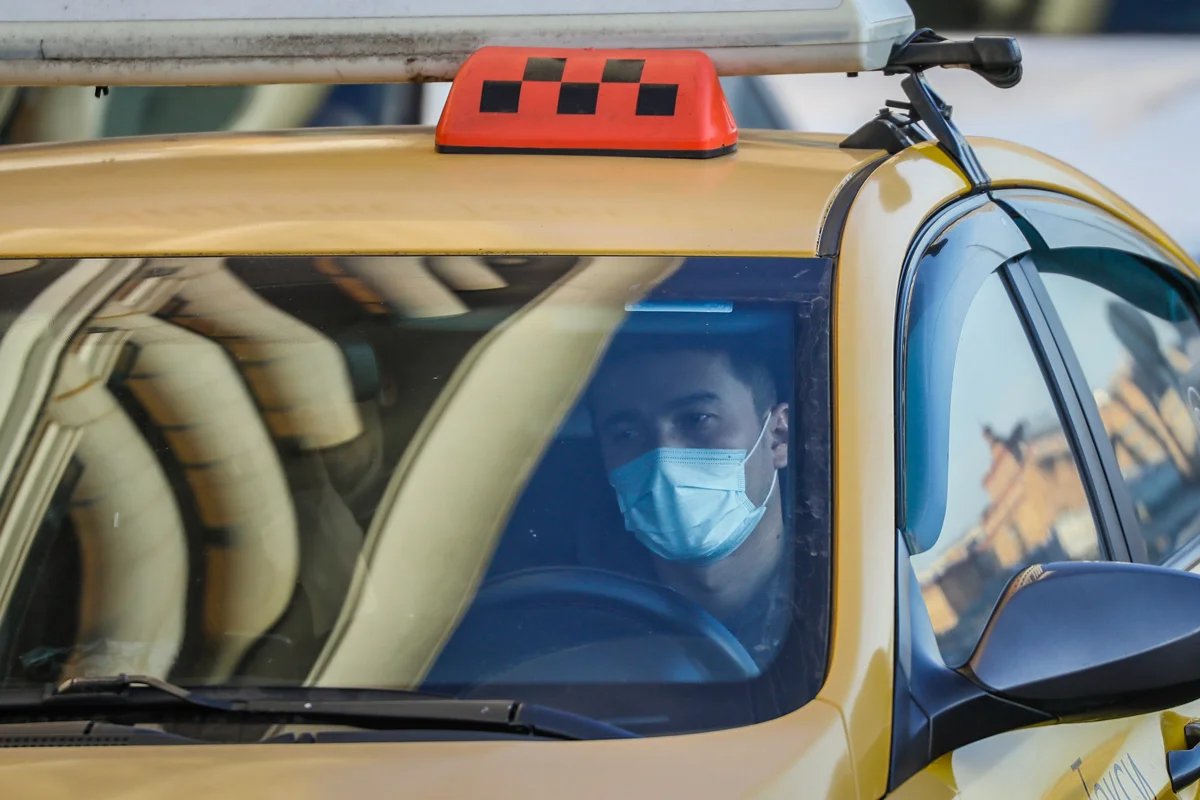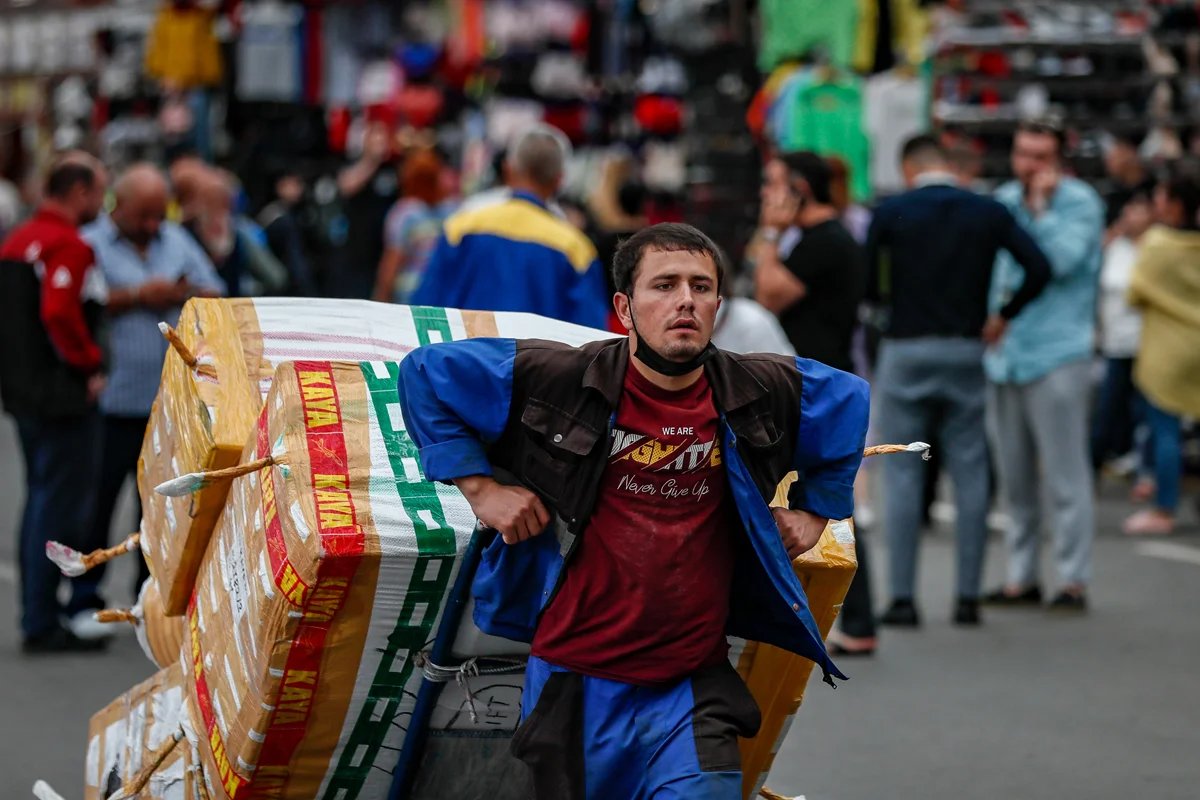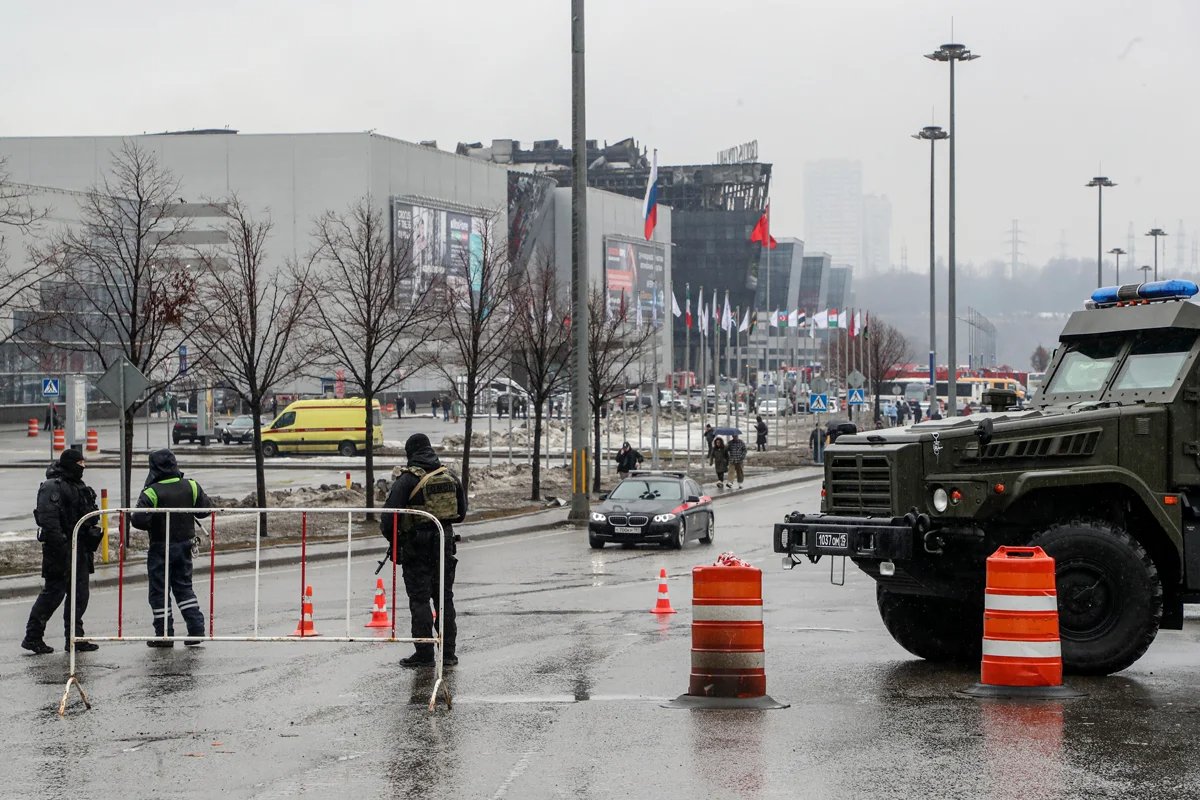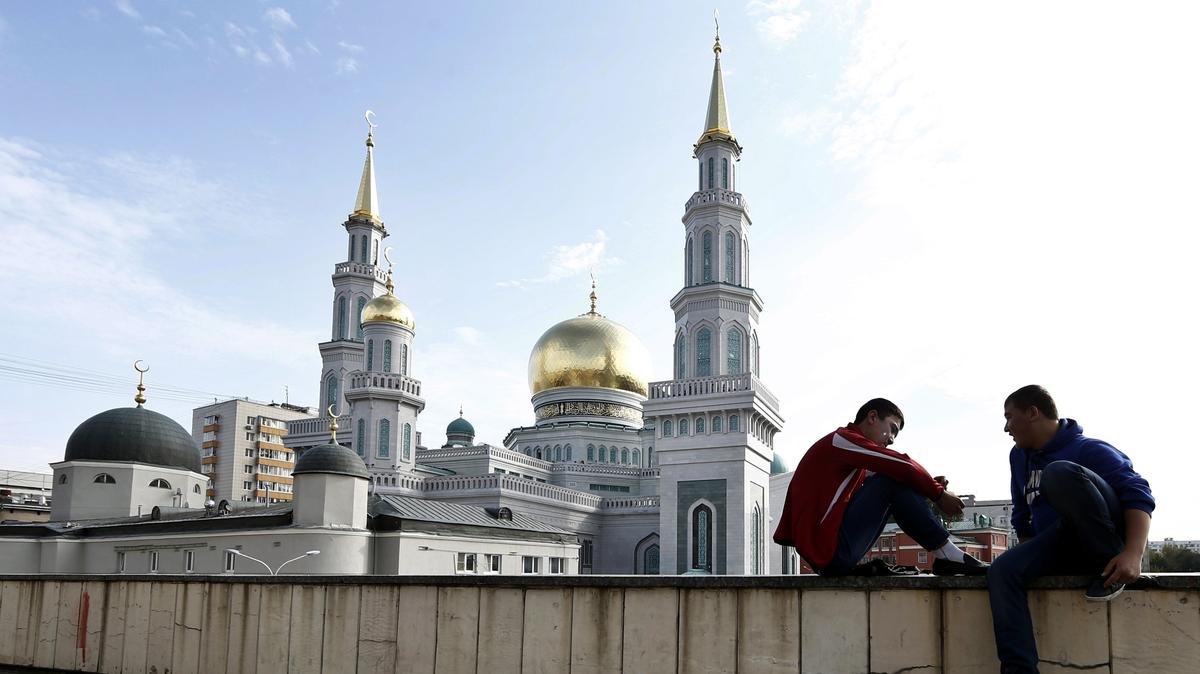An already-well-established atmosphere of fear among Central Asian migrants living in Russia has worsened since a group of Tajik men were charged with planning and carrying out last month’s horrific attack on Crocus City Hall.
“Hello, where are you from? If you’re from Tajikistan, cancel the booking.”
This was the message received by Rustam*, a former journalist from Tajikistan, on the Yandex Taxi app the day after the Moscow concert hall attack. While he initially wrote about the life of migrants in Russia after moving to the country, Rustam now works part-time as a taxi-driver in Kazan, a large city on Russia’s Volga River.
“I’ve had customers who didn’t want to get in the car with me. First they asked where I was from and when I said I was Tajik, they changed their minds. ‘If you’re from Tajikistan, cancel the booking. Don’t come. We don’t want a Tajik driver,’” Rustam explains.
Non-ethnic Russian passengers have also experienced similar reactions in the past week. Zukhra, a Chechen woman living in Moscow, said that when she ordered a car from Yandex Taxi, the driver called her and asked her where she was from, adding: “Are you Tajik?”
“I answered, ‘What if I am?’ He said if that were the case he wouldn’t pick me up. I wanted to know on principle what this was all about, why he was asking. I’ve been living in Moscow for years and my family encountered the same thing after the Moscow theatre siege of 2002. Do I have to deal with all that again now? I didn’t feel guilty about anything then, nor do I now. I said to him, ‘Do you think I carried out the attack? Or that I’ll do something to you?’ He said, ‘I just don’t want to see your face’. That’s how our conversation went.”
In channels for Tajik migrants on social media, users began sharing stories of being physically assaulted the morning after the 22 March attack, and warned other Tajiks against going out at night, Rustam said. That day, he completed his day shift, but decided to take a break from driving for fear of being attacked.

Photo: Yuri Kochetkov / EPA-EFE
He has good reason to be scared, due to both aggressive passengers and harassment by Russian law enforcement agencies. As news broke that the men suspected of carrying out the Crocus City Hall terrorist attack were from Tajikistan, law enforcement officers began raiding immigrant homes and workplaces. Radio Ozodi, the Tajik service of US-funded broadcaster Radio Free Europe/Radio Liberty, said it had heard from one local resident whose two brothers and son were detained by police in Moscow on the afternoon of 23 March. Nothing further has been heard from them since then.
The situation has become so tense that both Tajikistan and Kyrgyzstan have warned their citizens in Russia not to leave their homes, and advised anyone planning to travel there to cancel their trip.
Telegram channel Baza reported that the police had created special groups of officers to carry out additional checks on foreign citizens after the terrorist attack, which a source within the Moscow police confirmed.
Human rights activist Valentina Chupik told independent news outlet Mediazona Central Asia that she had heard from over 2,500 migrants in two days who said they had been victims of aggressive behaviour, subjected to police harassment or held illegally.
Required but unwanted
When Russia launched its full-scale invasion of Ukraine, the authorities quickly realised that a fresh wave of migration would be required to support the war effort. Consequently, almost 174,000 people from Tajikistan received Russian citizenship in 2022, a record high. The authorities then attempted to use many of these newly minted citizens to bolster troop numbers in Ukraine.
The need for new migrant workers was only made more acute by the decline in the population brought about by the war. According to a study the Russian Academy of Sciences published last year, Russia faces a labour deficit of almost 4.8 million people. That hasn’t stopped Russian politicians making xenophobic and anti-migrant statements since the terrorist attack, however.

Photo: Yuri Kochetkov / EPA-EFE
Mikhail Sheremet, a deputy claiming to represent annexed Crimea in the State Duma, Russia’s lower house of parliament, said there should be restrictions on migrants entering Russia while the war in Ukraine is ongoing.
“Foreigners coming across the border are a threat, chiefly to themselves, because they are automatically of interest to Western secret services wanting to carry out terrorist acts in Russia and destabilise the country,” said Sheremet.
Vladislav Davankov, the deputy speaker of the State Duma and a candidate in this month’s sham presidential election, said that migrants should be deported for the slightest offence.
Rustam has some thoughts on radicalisation himself. “There are almost no radical Islamists in Tajikistan. The guys who are radical here in Russia are peaceful in Tajikistan, because the security forces hand out harsh prison sentences for the slightest thing. Here you see everyone walking around with beards, but if you saw them back in Tajikistan, they’d be neat and tidy and have no beard.”
He puts the fact that some Central Asian migrants succumb to radical ideas while in Russia down to the hard life they experience there.
“Firstly, there are the financial difficulties. They move abroad, have no money, no support, nothing. To get a job, you first need to manage a huge amount of paperwork, apply for a permit, go here for documents, which costs money, go there, which costs more money. Then their families and parents start calling, saying they need cash. It’s hard to make a living,” Rustam says.
Criminal solidarity
A Moscow-based Tajik human rights activist who asked to remain anonymous stressed that it is almost impossible for citizens of Tajikistan to get assistance from their own embassy. In addition to that, Tajiks assisting other Tajiks in Russia can often lead to persecution either in Russia or Tajikistan.
Izzat Amon headed the Tojikon human rights centre in Moscow, set up to provide much-needed legal and financial assistance to migrants, until he was deported to Tajikistan in 2021. Upon arrival in the Tajik capital Dushanbe, the well-known Tajik human rights activist was immediately arrested and charged with fraud in what was almost certainly payback for his public criticism of the Tajik government’s failure to defend the rights of its own citizens in Russia. He is currently serving a nine-year prison sentence.

Police officers outside Crocus City Hall after the terrorist attack. Photo: Maxim Shipenkov / EPA-EFE
Uzbek human rights activist Bakhrom Khamroev was detained in Moscow the day Russia launched its full-scale invasion of Ukraine just over two years ago. The FSB charged him with expressing support for the activities of Hizb ut-Tahrir, an Islamist organisation banned in Russia, for six Facebook posts he had written. He was eventually sentenced to 13 years and 9 months in a Russian prison on charges of involvement with an extremist organisation.
Rustam says that this is why the Tajik community in Russia lacks cohesion and its members feel unsafe helping each other.
Andrey Serenko, a Russian expert on Central Asia and Afghanistan, told Mediazona Central Asia, “Migrants are for the most part low-skilled workers who don’t earn high incomes. Their status often makes them absolutely powerless. … Recruiters play on this. A ‘friend’ appears and says, ‘They’re all infidels, enemies of Allah! Why are they oppressing you? Because you are a true, devout Muslim, and they hate you for it.’”
The Tajik human rights activist Novaya Europe spoke to also said that the precarious situation in which many Tajik migrants find themselves makes them easy targets, and not just for ISIS recruiters.
“It’s not just radicals. The Russian authorities exploit that too. They sweet-talk them with promises of citizenship, money and security into going to war,” he says, adding that just because some Tajiks who are struggling in a foreign country and don’t speak Russian fall prey to radicals doesn’t mean all migrants are likely to do so.
“Russian citizens, ethnic Russians, have joined ISIS too. Does that mean all Russians are potential terrorists? Why is collective responsibility bad if applied to Russians but not to Tajiks? This is just xenophobia and hatred.”
*not his real name

